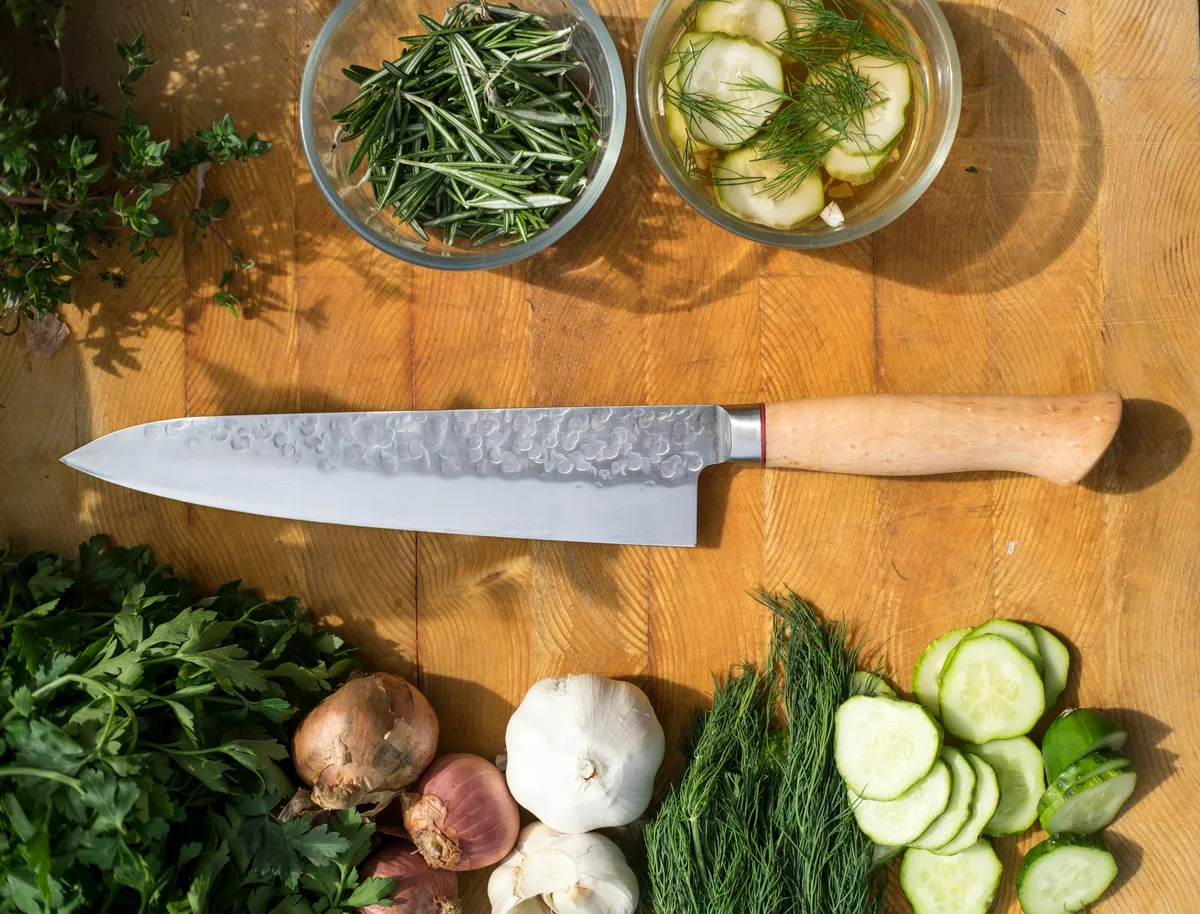The Chef's Knife

The modern kitchen is filled with purpose-built gadgets whose functions were at one point previously accomplished by a single tool: the chef's knife.
- Garlic-presses
- Multi-function onion-choppers
- Avocado-slicers
- Mandoline-slicers
- Apple corer/slicer
What was once a versatile kitchen instrument has been quietly replaced. In the process, did we lose something?
First Principles
There’s a first principles-like element to the proper use of the chef’s knife.
- Garlic - You can get a garlic press; or, you can chop the garlic with your knife. After chopping the garlic finely, if you add a bit of salt (for friction), you can use the side of the blade to mash the garlic into a paste. The paste distributes more easily into the dish, and you get the benefit of using the entire clove.
- Onion - You can use an onion chopper; or, you can dice the onion by hand. If you’re very careful, you can mathematically optimize for even pieces! If you get watery-eyes, sharpen your knife! A sharp knife makes a cleaner-cut that releases less tear-producing compounds.
- Herbs - You can use kitchen shears to cut up herbs; or, you can use a rocking motion with a chef knife for a fine chop. The rock-chop method bruises the herbs, which (while making them look ugly and oxidize faster) immediately releases the aroma and volatile oils. Useful when you're using herbs for flavor and not garnish.
There’s a level of artistry, form, and precision that’s lost by the specialized tool.
Chef's Knife Life
I’m an optimizer by nature and a sucker for just the right tool for the job, which is challenging because these days there is always the right tool for the job. For a price, someone will always sell it to you. Given this, it feels logical, natural, and even necessary to wait. This is the nature of the false premise for me:
Wait—for the right tool to come along. Wait—until you’re able to optimize for the task at hand. Wait—because such tools are prerequisites to accomplishing your goals. Wait—because the nature of your particular task is somehow different than the similar tasks that have come before.
Perhaps we could call this the specialized delay fallacy1.
Have we always had such luxury? It feels like we used to do more with so much less. We used what we had, because that’s all we had. There was never any other choice. And in the ultimate accomplishment of the task, we proved to ourselves difficult things can be done despite such handicaps. Overcoming the challenge required skill, critical thinking, and thorough understanding.
For that reason, in sharp contrast to the fallacy above, I think the idea of skilled use of general tools is widely applicable. Intuitively, it seems like across professions, it’s the skilled professional that remains capable with the most basic set of tools.
While first appearing to be limiting, with focus and intentional effort, using generalized tools often enhances your capabilities. It's because of the extra effort, the friction in the difficulty of the task itself that knowledge is deepened and skills are refined. Eventually with enough repetition these skills become battle-tested. To an outsider, results leave no room for interpretation; it’s the craftsman’s doing. I strive to be so capable.
So the next time you find yourself handcuffed by inadequate tools—consider it a blessing and be a craftsman.
I definitely made this up, but it feels like it should exist.↩